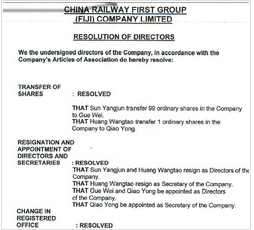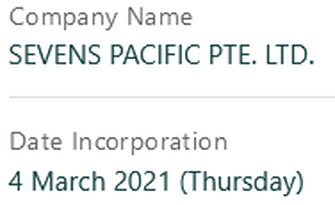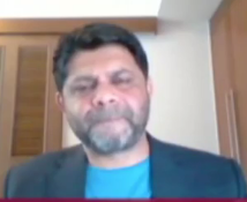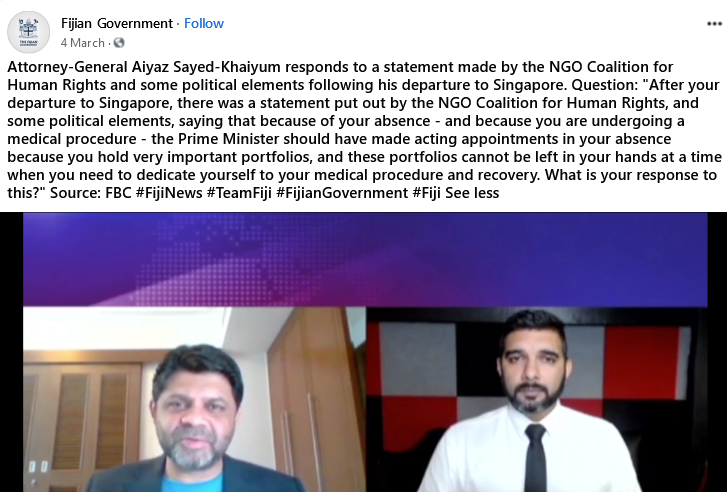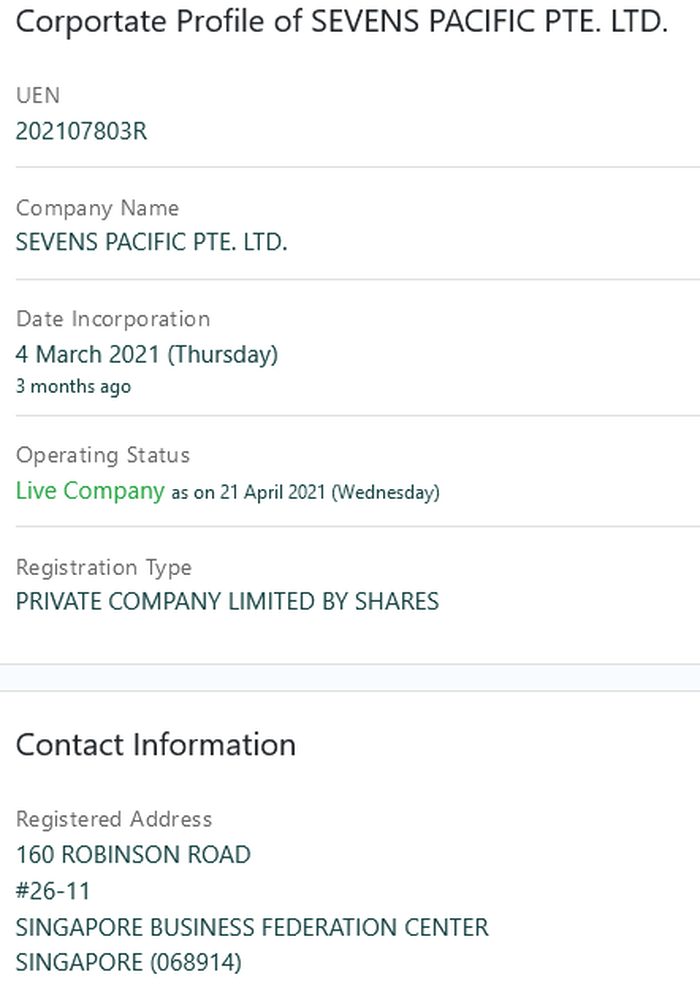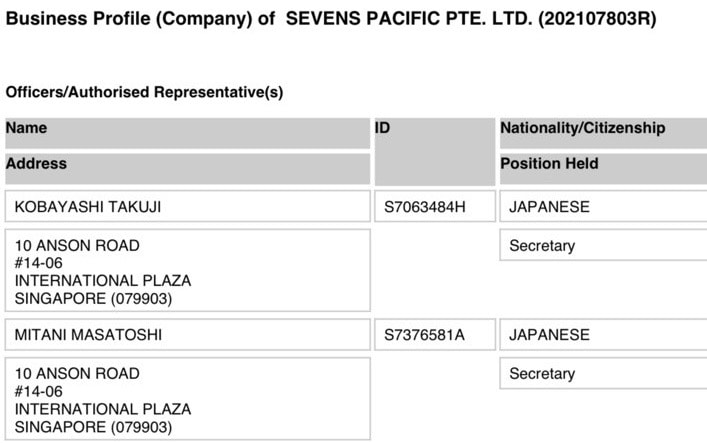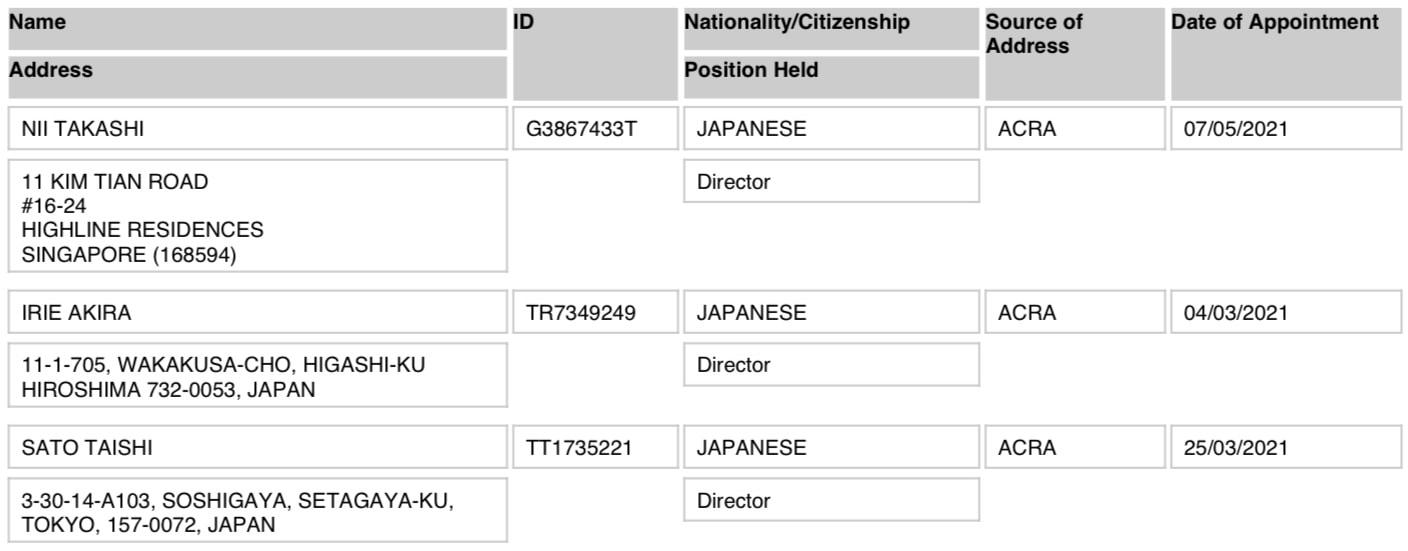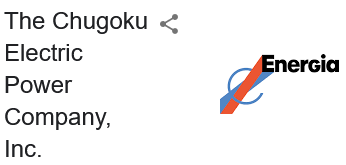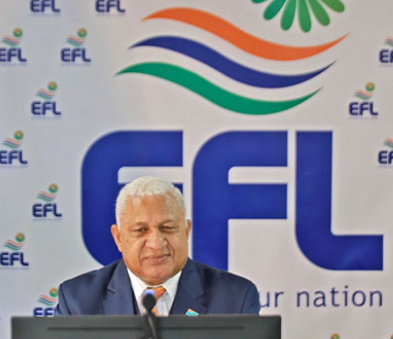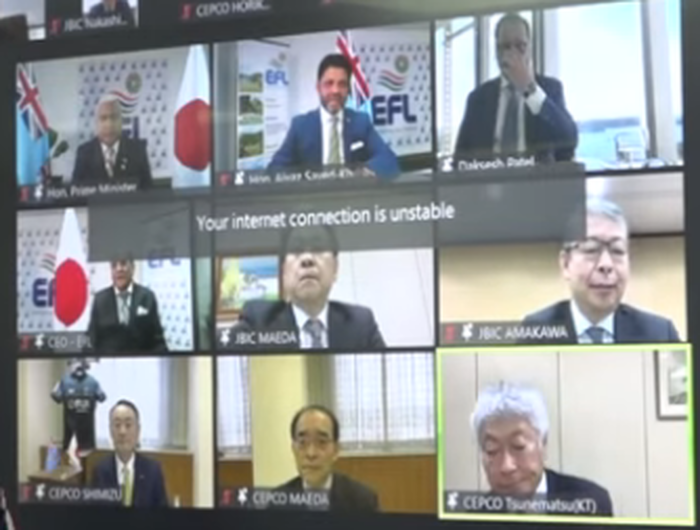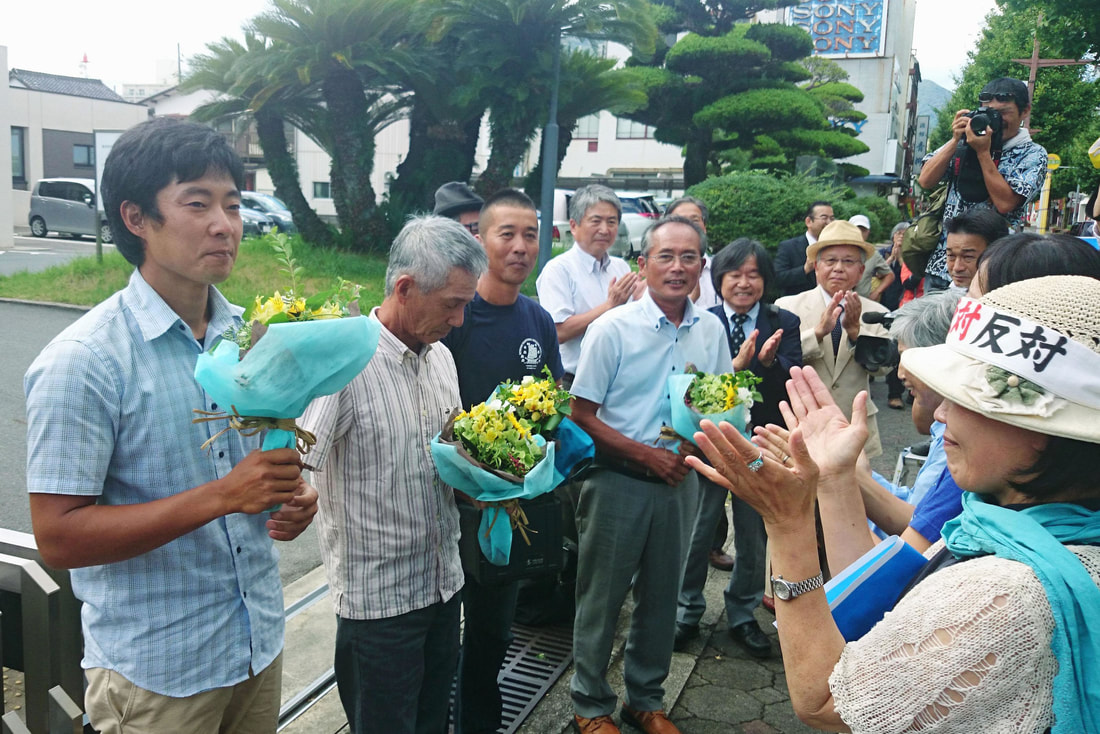| Chugoku Electric Power Co., Inc. (Chugoku EPCO) will nominate three new board members to the Energy Fiji Limited (EFL) board. Chugoku EPCO and the Japan Bank for International Cooperation (“JBIC”) in March signed a share sale agreement for the acquisition of 44 per cent stake in EFL . This was via a special purpose company newly established in Singapore (Sevens Pacific Pte. Ltd.) Currently there are seven board members of which three will be represented by Sevens Pacific Pte. Ltd. This new agreement will also strengthen the long-standing friendship Fiji and Japan share. EFL chief executive officer Hasmukh Patel said he would not make a statement on the matter. Source: Fiji Sun 27 April 2021 |
Prime Minister Voreqe Bainimarama today signed an agreement on the sale of 44% shares of Energy Fiji Ltd to Sevens Pacific Pte Limited today.
Sevens is a joint venture company established in Singapore comprising of a partnership between the Japanese company Chugoku Electric Power Company Limited (Chugoku) and the Japan Bank of International Cooperation (JBIC).
While speaking during the MOU signing, Bainimarama says the Fijian Government had always aimed to secure a strategic investor in EFL who would align Fiji’s energy sector to international best practices and ensure the long-term development of robust renewable energy programs.
Bainimarama further says government will remain the majority shareholder.
Bainimarama says EFL is already at the forefront in adopting renewable energy sources.
He says in 2018 over 50 per cent of the country’s electricity was generated by EFL utilising renewable sources, and now with Chugoku, EFL will be further strengthening their operations and undertaking projects that will significantly expand their renewable energy sources to communities all over Fiji.
Minister for Economy Aiyaz Sayed-Khaiyum says the opportunities in Fiji are numerous as Fiji is seen as the hub of the South Pacific.
He says EFL has been run well and with this partnership there are enormous opportunities for EFL to venture into investment opportunities outside of Fiji too.
Sevens is a joint venture company established in Singapore comprising of a partnership between the Japanese company Chugoku Electric Power Company Limited (Chugoku) and the Japan Bank of International Cooperation (JBIC).
While speaking during the MOU signing, Bainimarama says the Fijian Government had always aimed to secure a strategic investor in EFL who would align Fiji’s energy sector to international best practices and ensure the long-term development of robust renewable energy programs.
Bainimarama further says government will remain the majority shareholder.
Bainimarama says EFL is already at the forefront in adopting renewable energy sources.
He says in 2018 over 50 per cent of the country’s electricity was generated by EFL utilising renewable sources, and now with Chugoku, EFL will be further strengthening their operations and undertaking projects that will significantly expand their renewable energy sources to communities all over Fiji.
Minister for Economy Aiyaz Sayed-Khaiyum says the opportunities in Fiji are numerous as Fiji is seen as the hub of the South Pacific.
He says EFL has been run well and with this partnership there are enormous opportunities for EFL to venture into investment opportunities outside of Fiji too.
Chugoku Electric accused of using SLAPP tactics to intimidate protesters
A settlement between Chugoku Electric and anti-nuclear protesters has raised the ire of activists and legal experts who claim the legal maneuver constitutes what’s known as a SLAPP, or a strategic lawsuit against public participation.
SLAPPs are commonly filed in the United States as a way to intimidate protesters into silence.
In the suit, filed in December 2009, Chugoku Electric Power Co. demanded ¥39 million ($384,000) in compensation, saying four protesters blocked land reclamation work needed to build the Kaminoseki nuclear power plant in Yamaguchi Prefecture by using fishing boats and kayaks to demonstrate in waters at the construction site.
“It was really a very tough and long fight,” one of the four protesters said after the settlement was reached at the Yamaguchi District Court on Aug. 30 — about six years and eight months after the utility sued them.
In the U.S., major companies and public entities often file similar lawsuits called SLAPPs. They are regulated in many U.S. states on the grounds that they could impede freedom of speech. Similar cases have received far less attention in Japan.
The trial ended with the utility agreeing to drop its compensation claim and the protesters promising not to enter the construction site or disturb work-related vessels once reclamation work resumes.
Progress on the contentious plant, proposed in 1982, had been slow amid stiff local opposition. The triple core meltdown at the Fukushima No. 1 power plant in 2011 dealt it a further blow, leading to the halt in reclamation work.
Lawyers for the protesters call the suit “a typical SLAPP,” explaining that Chugoku Electric failed to fulfill its obligation to prove its claim.
The trial dragged on without the utility making clear exactly when and where the four obstructed the landfill work, their lawyers said.
“The purpose was to prolong (the trial) and make them weary (of protesting further),” the defendants’ representatives said.
Under the settlement reached at the urging of the court, the utility dropped its damages claim and the protesters won’t face any restrictions on their ability to express their opinions. But they are barred from entering the area designated for the plant or from obstructing vessels involved in the project. If they do, they could face fines.
The lawyers still hailed the settlement as an “effective win” because the protesters did not have to pay any compensation and do not face restrictions on future protest activities.
Still, the time spent resolving the case was nearly 10 times longer than an average civil case, which normally takes about eight months to conclude.
The drawn-out legal battle led one of the lawyers to admit, “You could say that Chugoku Electric was able to attain its goal to a certain extent.”
The court time also took a psychological toll on the four protesters — none of whom had ever been sued before. They had no idea how to hire a lawyer, where to find the money to pay for their legal expenses, or anticipate the impact the lawsuit would have on their lives and work.
“The money they sought from us was an impossible amount, no matter how we went about it. I wondered what was going to happen to me?” protester Toshiyasu Shimizu, 61, recalled. He heads a group of anti-nuclear residents on an island several kilometers from the Kaminoseki construction site.
“I was in a better situation (than the others) because I have no kids. I felt terrible to see their family members suffer hardship,” said Hisao Hashimoto, a 64-year-old fisherman and carpenter who was also sued.
After a deal was reached, Chugoku Electric said in a statement that it hopes to build a nuclear plant that will not raise safety concerns in the local community.
“We will also make our utmost efforts to win consent from as many people as possible,” it said. Source: The Japan Times, 9 September 2016
SLAPPs are commonly filed in the United States as a way to intimidate protesters into silence.
In the suit, filed in December 2009, Chugoku Electric Power Co. demanded ¥39 million ($384,000) in compensation, saying four protesters blocked land reclamation work needed to build the Kaminoseki nuclear power plant in Yamaguchi Prefecture by using fishing boats and kayaks to demonstrate in waters at the construction site.
“It was really a very tough and long fight,” one of the four protesters said after the settlement was reached at the Yamaguchi District Court on Aug. 30 — about six years and eight months after the utility sued them.
In the U.S., major companies and public entities often file similar lawsuits called SLAPPs. They are regulated in many U.S. states on the grounds that they could impede freedom of speech. Similar cases have received far less attention in Japan.
The trial ended with the utility agreeing to drop its compensation claim and the protesters promising not to enter the construction site or disturb work-related vessels once reclamation work resumes.
Progress on the contentious plant, proposed in 1982, had been slow amid stiff local opposition. The triple core meltdown at the Fukushima No. 1 power plant in 2011 dealt it a further blow, leading to the halt in reclamation work.
Lawyers for the protesters call the suit “a typical SLAPP,” explaining that Chugoku Electric failed to fulfill its obligation to prove its claim.
The trial dragged on without the utility making clear exactly when and where the four obstructed the landfill work, their lawyers said.
“The purpose was to prolong (the trial) and make them weary (of protesting further),” the defendants’ representatives said.
Under the settlement reached at the urging of the court, the utility dropped its damages claim and the protesters won’t face any restrictions on their ability to express their opinions. But they are barred from entering the area designated for the plant or from obstructing vessels involved in the project. If they do, they could face fines.
The lawyers still hailed the settlement as an “effective win” because the protesters did not have to pay any compensation and do not face restrictions on future protest activities.
Still, the time spent resolving the case was nearly 10 times longer than an average civil case, which normally takes about eight months to conclude.
The drawn-out legal battle led one of the lawyers to admit, “You could say that Chugoku Electric was able to attain its goal to a certain extent.”
The court time also took a psychological toll on the four protesters — none of whom had ever been sued before. They had no idea how to hire a lawyer, where to find the money to pay for their legal expenses, or anticipate the impact the lawsuit would have on their lives and work.
“The money they sought from us was an impossible amount, no matter how we went about it. I wondered what was going to happen to me?” protester Toshiyasu Shimizu, 61, recalled. He heads a group of anti-nuclear residents on an island several kilometers from the Kaminoseki construction site.
“I was in a better situation (than the others) because I have no kids. I felt terrible to see their family members suffer hardship,” said Hisao Hashimoto, a 64-year-old fisherman and carpenter who was also sued.
After a deal was reached, Chugoku Electric said in a statement that it hopes to build a nuclear plant that will not raise safety concerns in the local community.
“We will also make our utmost efforts to win consent from as many people as possible,” it said. Source: The Japan Times, 9 September 2016
